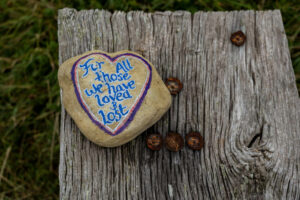Sadness and depression are common emotions that affect the lives of millions of people all…
The value of friendship cannot be overstated. It’s great to have friends who understand you and share your values and passions. Without them, life lacks purpose and would be boring. Having supportive peers is crucial to mental health. When you have a buddy, you have someone you can confide in. They are privy to every one of your secrets, good and evil.
As technology develops, you might also find a new social network on the internet. You might not know them very well at all. Getting to know these people and earning their confidence could take some time. It’s not easy to find a truly remarkable companion these days. But how do you determine if a relationship is unhealthy and needs to be severed? When is it appropriate to distance yourself from a negative friend? Keep reading to find out.
What Makes a Good Friend?
The truth is, we all do so occasionally. A few of them may become close friends, while the rest will stay in casual contact. It’s possible that friendship isn’t based solely on how long two individuals have known each other. Some long-standing partnerships eventually fizzled out. However, there are those who, after only a few months of meeting, can already claim to be lifelong companions.
Everyone longs for genuine and long-lasting friendships. You should surround yourself with people who will make you happier. Here are some telltale indicators of a trustworthy friend:
- No matter how busy they are, your buddy will always find time for you.
- Your buddy does not judge you for who you are.
- Your buddy doesn’t make you feel down or hurt.
- A true friend is considerate, reliable, and devoted.
- You two are always having a good time together.
- Your support and uplift one another.
- A true friend tells you the truth all the time, whether it’s positive or bad.
- When difficulties enter your existence, they don’t just disappear. They want to reassure you and help you get through this difficult time.
- If friends are not completely reliant on each other, the relationship is healthy. Together, they provide room for development.
But what occurs when your valued friendship turns sour? You can no longer count on your friend to be a good example. They make it harder for you to develop and advance. You start to wonder if it’s time to cut ties and move on from the relationship.
How Would You Describe Toxic People?
The world is full of poisonous individuals. In some cases, they may even be more common than prospective friends. There is a fine line between being friends with someone toxic and someone who just loves to argue and annoy you. Not all your annoying friends are toxic, so don’t go racing around destroying your friendships just because you had a petty argument with your friends.
Negative energy is drained from those around toxic companions. They have no idea their very presence is poisonous. Listed below are indications you have befriended a toxic person:
- They are always worried, tense, short-tempered, and sad. They are very erratic in their feelings.
- They are masters of deception. They want to dictate your every choice, down to the clothes you wear and the meals you eat.
- A poisonous individual will abuse and degrade you. The limits you establish for yourself will be mocked by these people.
- They are unwilling to own up to their mistakes and instead place the burden on you.
- To get over a toxic relationship, you may need to embrace the fact that a friendship must end. In all likelihood, your toxic acquaintance will experience an outpouring of negative feelings. Drop the connection and stop making excuses if the toxicity is too high.
Toxic people are hurt and angry inside. They act cruelly because they are subconsciously acting out their emotional pain. They are individuals who lack confidence in themselves. To boost their self-esteem, they constantly bring others down. They might covet your possessions and wonder how they can acquire them for themselves.
Bad Blood in the Family
Conflict and miscommunication within families occur frequently. Nothing can separate a family. Unlike blood relatives, acquaintances can be abandoned with relative ease. However, severing connections with a family member may be necessary if the relationship has become toxic. It’s important to sort out whether or not this is a toxic loved one versus a straightforward feud. The following are warning indicators of a toxic relative:
- You despise being around them.
- You argue or quarrel all the time.
- They don’t value your opinions, space, or friendships the way you do. It makes you feel like they don’t care about how you feel.
- That person is cruel.
How Do You Break Up With a Bad Friend?

Breaking up is a tough thing to do. It will be psychologically taxing and draining on you, so it’s best to let go and eliminate the negativity. Here are some suggestions for how to gracefully terminate a toxic friendship:
You Must Establish the Nature of the Bond
Talking things out is always the best option. Having a civil discussion with your toxic friend could be very awkward. You need to be willing to face reality and be sincere with yourself to cut ties with your toxic acquaintance. Avoid dragging out the conflict for too long. A bad acquaintance does more harm than good. If you think you can influence your buddy, think again. They must initiate the shift to see it through.
Get Ready to Have a Talk
Get ready to have that discussion with your pal in your head. It will be difficult, and there may be some hostile exchanges. They might even try to pin the responsibility for their poisonous behaviour on you. You are welcome to put your thoughts down on paper. If you want to get right to the point, you should practise and memorise it. Your buddy won’t have a chance to come up with an excuse if you do it this way. You once considered this toxic individual a friend. You are the best person to have this conversation with.
Simply State Your Point and Move on
Take care to express yourself clearly while maintaining decorum. In the past, you two were close. The discussion will explore terrible ways if you are too harsh. Don’t waver in your resolve to cut ties with your toxic buddy.
Limit Yourself
You should not only write down the points you wish to make but also the limits within which you wish to do so. Having clear boundaries in a partnership is vital to its well-being. The “no calling or texting” limit is an important one to think about. You would rather avoid this toxic individual in person or online in the future. You should tell your mutual acquaintances that you are no longer in contact with your toxic friend. They’ll know not to include themselves in any further correspondence.
What Occurs When a Harmful Relationship Ends?
They refuse to acknowledge their mistakes. They may devise schemes to disseminate slander about you. That’s why it’s important to make plans for your future. Setting personal objectives is a great way to keep your mind active and make progress more rapidly.
Misinformation is Inevitable
You already know the reality, so don’t let what others say affect you. Try to shut out any bad vibes. You should stay away from your ex-teammate because all he wants is your focus. The rumour mill will eventually run dry. You, too, have suffered greatly from the strain of your poisonous relationship. It causes you to question your worth, feel sorry for yourself, and possibly even become angry at yourself.
You must go out and have fun with your pals. Don’t cry over a relationship that poisoned you. The end has arrived for your poisonous relationship. You need to hang out with the people who will encourage and uplift you the most.
Always do it sober
Alcohol consumption can cause us to behave in ways that are out of character, such as becoming angry or aggressive. According to experts, the way substance affects the brain is the reason some individuals become aggressive when they are intoxicated. The likelihood of acting aggressively or furiously, as well as of being the target of someone else’s rage, increases after binge drinking. Alcohol consumption has a complex effect on aggressive or even violent behavior.
Many alcoholics never become violent, and even people who do occasionally become aggressive don’t always do so. However, there is compelling evidence connecting alcohol and aggression.
Alcohol has several physical effects on the body that can increase aggression:
Alcohol can cause you to focus more narrowly and lose perspective. Alcohol myopia is the tendency to miss environmental and social signals that aid in rational interpretation of situations and to pay a lesser price to the longer-term effects of immediate actions. This means that when intoxicated, a person may “rise to the bait” rather than consider the repercussions and act violently or angrily even over a thing they might normally brush off.

Losing a partner in life is devastating. Experiences of emotional loss might be intense during…

Have you ever set a goal and found your motivation waning midway? Or perhaps, struggled…
Alcohol consumption alters how you process information.
You are more likely to misjudge other people’s behavior after drinking alcohol.10 This may be the cause of the fact that a simple bar bump can lead to a drunken altercation.
Alcohol lowers inhibition, making it more difficult to think clearly. Drinking alters the chemistry of your brain. A small quantity of alcohol can initially make you feel at ease, but what alcohol really does is suppress the activity of brain regions linked to inhibition. You may be prone to find oneself in aggressive or even dangerous circumstances because any alarm signals that might typically go off (known as “inhibition”) are far less probable to work. The likelihood that drinking will make you feel tense and anxious increases as you consume more alcohol (due to its impact on brain chemicals like “GABA”).12,13
- Alcohol Addiction Help
- Easy Ways to Stop Drinking – Discover easy ways to stop drinking and begin your journey towards a healthier and sober life.
- Recovery by Fear – Understanding the role of fear in recovery from addiction.
- Symptoms of Addiction – Learn about common symptoms of addiction and the need for professional help.
- Addiction Treatment for Alcoholism – Exploring treatment options for alcoholism.
Can a Toxic Person Be Fixed?
A person who is toxic to others likely has some unresolved problems of their own. Only by how they treat other people can you tell. They’re not the worst individuals in the world, and they’re not criminals, either. They might have a diagnosable psychiatric illness. They might be suffering from a narcissistic personality disorder or bipolar illness.
A poisonous individual cannot be helped. They are the only ones who, along with a counsellor, can change their poisonous character. But breaking up with them serves as a harsh awakening. They need to take responsibility for their issues and get assistance, hopefully soon. This is not something you should bring up with them, especially delicately. You can only trust that they can get help quickly.
You don’t owe it to toxic individuals, and there’s not much you can do for them anyway. Pay more attention to yourself. Get on the road to recovery after terminating a destructive relationship. Your current discomfort will eventually dissipate. It’s hard to say goodbye to a buddy. Don’t forget to give yourself some room to relax. You, too, can gain wisdom from your experiences. The lesson learned from this experience should ensure that it never happens again.


